
The Technion – Israel Institute of Technology is a public research university located in Haifa, Israel. Established in 1912 by Jews under the dominion of the Ottoman Empire, the Technion is the oldest university in the country.

The Bibliothèque et Archives nationales du Québec or BAnQ is a Quebec government agency which manages the province's legal deposit system, national archives, and national library. Located at the Grande Bibliothèque in Montreal, the BAnQ was created by the merging of the Bibliothèque nationale du Québec and the Archives nationales du Québec in 2006. The Bibliothèque nationale du Québec had previously merged with the Grande Bibliothèque du Québec in 2002.
Library collection development is the process of systematically building the collection of a particular library to meet the information needs of the library users in a timely and economical manner using information resources locally held as well as resources from other organizations. "According to is a dynamic self perpetuation cycle or process and consists six definable stages namely,community analysis, selection policies, selection, acquisition, weeding and evaluation.
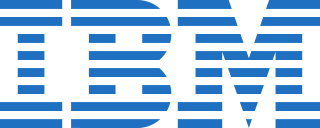
IBM is a globally integrated enterprise operating in 170 countries. IBM's R&D history in Israel began in 1972 when Professor Josef Raviv established the IBM Israel Scientific Center in the Technion's Computer Science Building in Haifa. As of 2023, over 3000 individuals work at IBM R&D locations across Israel, including Haifa, Tel Aviv, Herzliya, Rehovot, and the Jerusalem Technology Park.

The following outline is provided as an overview of and topical guide to library and information science:
The California Digital Library (CDL) was founded by the University of California in 1997. Under the leadership of then UC President Richard C. Atkinson, the CDL's original mission was to forge a better system for scholarly information management and improved support for teaching and research. In collaboration with the ten University of California Libraries and other partners, CDL assembled one of the world's largest digital research libraries. CDL facilitates the licensing of online materials and develops shared services used throughout the UC system. Building on the foundations of the Melvyl Catalog, CDL has developed one of the largest online library catalogs in the country and works in partnership with the UC campuses to bring the treasures of California's libraries, museums, and cultural heritage organizations to the world. CDL continues to explore how services such as digital curation, scholarly publishing, archiving and preservation support research throughout the information lifecycle.

An academic library is a library that is attached to a higher education institution and serves two complementary purposes: to support the curriculum and the research of the university faculty and students. It is unknown how many academic libraries there are worldwide. An academic and research portal maintained by UNESCO links to 3,785 libraries. According to the National Center for Education Statistics, there are an estimated 3,700 academic libraries in the United States. In the past, the material for class readings, intended to supplement lectures as prescribed by the instructor, has been called "reserves". Before electronic resources became available, the reserves were supplied as actual books or as photocopies of appropriate journal articles, whereas modern academic libraries generally also provide access to electronic resources.
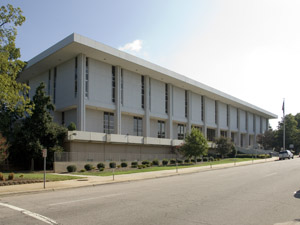
The State Library of North Carolina is an institution which serves North Carolina libraries, state government employees, genealogists, and the citizens of North Carolina. The library is the main depository for North Carolina state publications and serves the needs of North Carolina government agencies and state government employees by providing access to information resources that are vital to public decision-making and economic development.

The Texas A&M University Libraries support the teaching, research, and outreach missions of Texas A&M University through leadership in acquiring, managing, and delivering information in an environment that fosters learning and inquiry. In particular, Texas A&M is nationally and internationally recognized for many research collections, including:
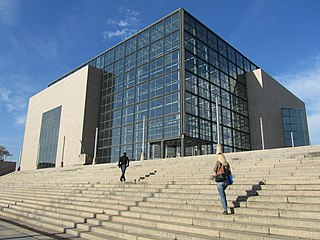
National and University Library in Zagreb (NSK) is the national library of Croatia and central library of the University of Zagreb.

A digital library is an online database of digital objects that can include text, still images, audio, video, digital documents, or other digital media formats or a library accessible through the internet. Objects can consist of digitized content like print or photographs, as well as originally produced digital content like word processor files or social media posts. In addition to storing content, digital libraries provide means for organizing, searching, and retrieving the content contained in the collection. Digital libraries can vary immensely in size and scope, and can be maintained by individuals or organizations. The digital content may be stored locally, or accessed remotely via computer networks. These information retrieval systems are able to exchange information with each other through interoperability and sustainability.
In the context of libraries and archives, an inventory refers to a detailed list or record of the items, materials, or resources held within a collection.
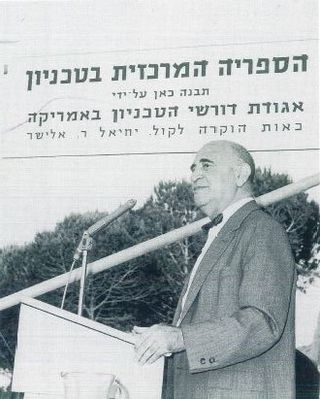
Jehiel Raphael Elyachar was an engineer, real estate developer and philanthropist who contributed to American and Israeli causes. He distinguished himself during World War II as a colonel in charge of military intelligence for the United States Army, earning the Bronze Star Medal, the Legion of Merit, and the Légion d'honneur.

The Catalog of Digital Historical Newspapers (NewspaperCat) is a free online resource for open-access digitized historical newspapers published in North America and the Caribbean. NewspaperCat was developed from a grant by the George A. Smathers Libraries at the University of Florida and is powered by SobekCM, the content management system used by the University of Florida Digital Collections.

The Younes and Soraya Nazarian Library is a central academic library of the University of Haifa, and one of the largest in Israel. It is also one of the most progressive Israeli libraries in terms of service, collection, physical space, and library information systems.

The Balme Library, established in 1948 is located on the main campus of the University of Ghana. The Balme Library was named after David Mowbray Balme, the first Principal of the University of Ghana. The Balme Library is the main library of the University of Ghana and is also the largest within the University of Ghana Library System (UGLS). It is endowed with information resources, IT infrastructure and expert staff. Since its establishment in 1948, the library has gone through successive growth with its printed book collection totaling over 400,000 volumes. The library subscribes to an increasing number of online databases including electronic journals (e-journals) and electronic books (e-books).
The Harold Andersen Library is the university library of the University of Wisconsin–Whitewater. The building was named after Harold Gilbert Andersen, and ground breaking and construction for the building began on April 9, 1951.
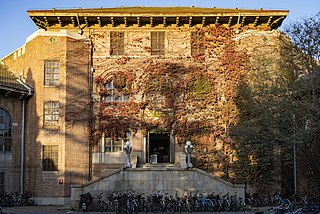
Tsinghua University Library System consist of the Main Library and six branch libraries: Humanities & Social Sciences Library, Economics & Management Library, Law Library, Architecture Library, Fine Arts Library, and Finance Library. The Main Library, with a total construction area of 42,820 square meters, consists of the Old Library, West Library and North Library. The West and North Libraries are integrated harmoniously in style with the Old Library.

The University of Jordan Library (UJL) (Arabic: مكتبة الجامعة الأردنية), established in 1962 alongside the founding of the University of Jordan, serves as a vital academic resource center in Amman, Jordan. Spanning over 12,000 square meters with an additional 4,000 square meters dedicated to reading rooms across the university's faculties and scientific centers, the library supports a diverse academic community. Housing over one million items, including print and electronic resources, the UJL offers extensive services to faculty, students, researchers, and international scholars. Its address located P.O. BOX 11942, Amman, Jordan.


















